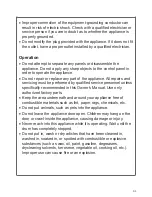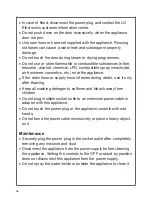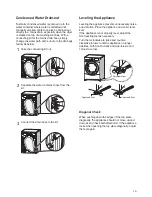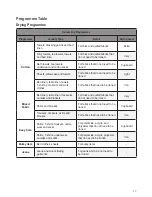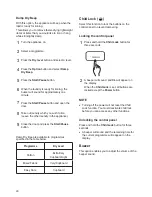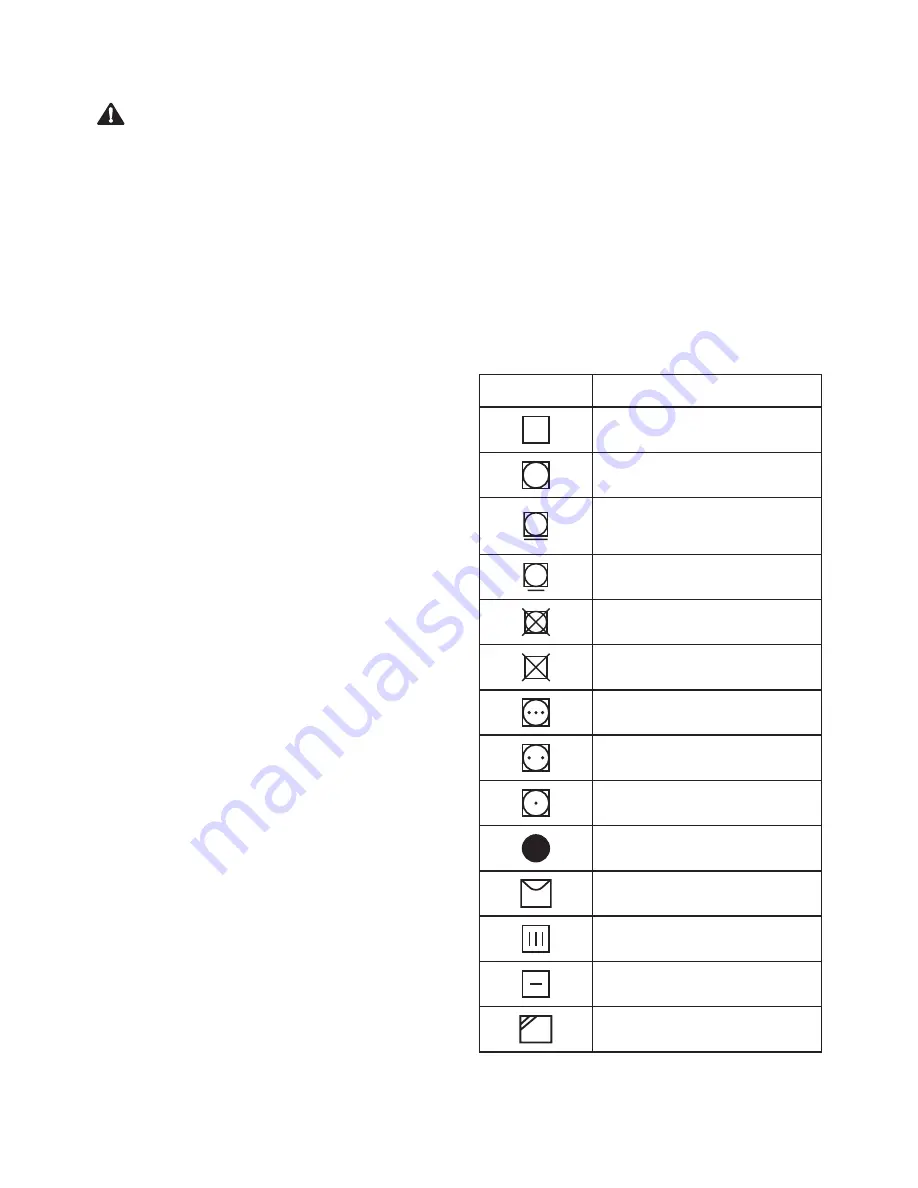
15
CAUTION
•
Be careful! The drum inside may still be hot.
•
The appliance must not be used for purposes
other than those for which it was designed.
NOTE
•
The final part of a tumble dryer cycle occurs
without heat (cool down cycle) to ensure that
laundry is left at a temperature that ensures the
laundry will not be damaged.
•
A high atmospheric temperature and a small
room may both increase drying time as well as
energy consumption.
Sorting Laundry
Clothes have their own wash care labels, so drying
according to the wash care label is recommended.
Not only that, the laundry must be sorted according
to size and type of fabric.
For the best drying performance and most efficient
energy usage, do not overload the appliance.
Woollens
Dry woollens on the Wool programme. Be sure
to follow fabric care label symbols first. Wool may
not be completely dried from the cycle, so do not
repeat drying. Pull woollens to their original shape
and dry them flat.
Woven and Loopknit Materials
Some woven and loopknit materials may shrink,
depending on quality.
Permanent Press and Synthetics
Do not overload the appliance. Take out permanent
press items as soon as the appliance stops to
reduce creases.
Baby Clothes and Night Gowns
Always check fabric care labels.
Rubber and Plastics
Do not dry any items made from or containing
rubber or plastics such as:
–
Aprons, Bibs and Chair Covers
–
Curtains and Table Clothes
–
Bathmats
Fiberglass
Do not dry fiberglass items in the appliance. Glass
particles left in the appliance may be subsequently
picked up by your clothes in later cycles.
Symbols
Instructions
Dry
Tumble dry
Permanent Press /
Crease resistant
Gentle / Delicate
Do not tumble dry
Do not dry
High heating
Medium heating
Low heating
No heat / air
Line Dry / hang to dry
Drip dry
Dry flat
In the shade
Summary of Contents for TD-C80NPW
Page 32: ......





